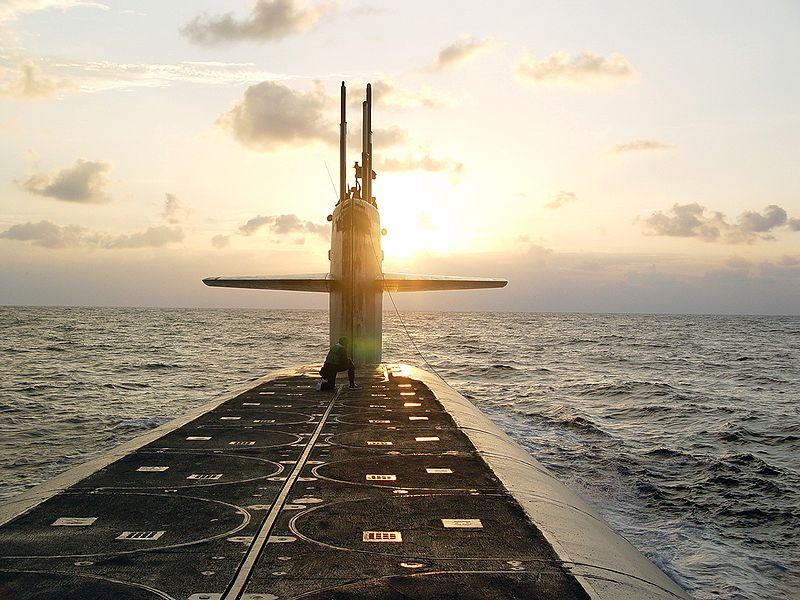Australia’s disarmament double-speak
Posted By Tim Wright on June 11, 2013 @ 11:31
 [1]Australia, like most nations, is happy to voice support at the UN for the total abolition of nuclear weapons. Even the P5 nuclear powers endorse this “ultimate” goal: in 2000 they famously made an “unequivocal undertaking” to eliminate their nuclear arsenals completely, although little progress has been made since then, and all are now investing heavily in the modernization of their nuclear stockpiles with the clear intention of retaining them for many decades to come. Australia’s disarmament declarations, like those of the P5 states, should be taken with a grain of salt.
[1]Australia, like most nations, is happy to voice support at the UN for the total abolition of nuclear weapons. Even the P5 nuclear powers endorse this “ultimate” goal: in 2000 they famously made an “unequivocal undertaking” to eliminate their nuclear arsenals completely, although little progress has been made since then, and all are now investing heavily in the modernization of their nuclear stockpiles with the clear intention of retaining them for many decades to come. Australia’s disarmament declarations, like those of the P5 states, should be taken with a grain of salt.
There are fundamental contradictions in our government’s policies on nuclear weapons, as Tanya Ogilvie-White pointed out in her recent blog post [2]. Australia rightly condemns countries such as North Korea for pursuing the bomb, and expresses dismay at the 17-year impasse in the Geneva-based Conference on Disarmament. But at the same time it claims reliance on US nuclear weapons for security, and supports nuclear targeting and missile defence through Pine Gap in Central Australia. When it comes to the worst weapons of mass destruction, our foreign and defence policies appear at odds with each other.
Australia will have little credibility as a disarmament advocate so long as it regards nuclear weapons as legitimate and useful tools in certain hands. Well-intentioned initiatives such as the International Commission on Nuclear Non-Proliferation and Disarmament (ICNND), launched by Kevin Rudd as prime minister during a visit to Hiroshima in 2008, have failed to advance progressive disarmament agendas. The commission’s co-sponsors, Australia and Japan, were equally eager to ensure that the ‘independent’ report didn’t seriously challenge extended nuclear deterrence or put significant pressure on nuclear-armed allies.
The tension between Australia’s defence and foreign ministries on nuclear issues was evident in a declassified submission made by Australia to the US nuclear posture review of 2009, which stated that our ‘desire’ to support the ‘important’ goals of ICNND ‘must be balanced against our strategic interest in ensuring stability through ensuring a credible US extended deterrence’. Around the same time, Australia’s ambassador to the US, Dennis Richardson, argued before a closed US congressional session that the United States should make more explicit its willingness to use nuclear weapons in our defence.
Therefore, when Australia established the ten-nation Non-Proliferation and Disarmament Initiative (NPDI) in 2010, few disarmament advocates expressed great enthusiasm. The initiative’s six ministerial statements to date have been predictably lacklustre. Its major shortcoming, as Ogilvie-White argues, is its composition. Only Mexico and Chile have strong disarmament credentials, and the majority of members are US allies. (Three even host US nuclear bombs on their soil.) As a result, the initiative is not taken seriously by Russia or China; nor is it well liked among pro-disarmament governments, who worry it will only act to slow things down.
The NPDI is concerned chiefly with non-proliferation. Its modest “disarmament” agenda focuses on improving stockpile transparency. Of the P5 nuclear-weapon states, Britain and the United States have been more willing than the rest to provide information on the size and composition of their nuclear arsenals; Russia and China remain the most opaque. The irony of this NPDI demand is that three of its members—Germany, the Netherlands and Turkey—will neither confirm nor deny the presence of US nuclear weapons on their own territory. Their policy is no better than Israel’s policy of ‘nuclear opacity’. They should practice what they preach.
The NPDI also emphasises ‘the importance of reducing the role and significance of nuclear weapons in military and nuclear doctrines’. Yet none of the US-allied NPDI members have reduced their own dependence on these ultimate weapons of terror. Australia’s recently published defence white paper, like others before it, reaffirmed the central role of nuclear weapons in our defence strategy. There’s been little debate in Australian public policy circles about adopting a nuclear-weapon-free defence posture, even though New Zealand has re-established close defence ties with the US while remaining avowedly nuclear-free.
The NPDI agenda is a continuation of the failed step-by-step approach to nuclear non-proliferation and disarmament long advocated by the same states. The new agenda, which Australia should enthusiastically embrace, is a global ban on nuclear weapons—a treaty to put nuclear weapons on the same legal footing as biological and chemical weapons. Even without the initial backing of nuclear-armed states, a ban treaty would create a clear global norm against the possession of nuclear weapons by any nation and help kill off some of the tentacles that sustain our nuclear-armed world. It would provide a framework for reaching global zero.
Tim Wright is Australian Director of the International Campaign to Abolish Nuclear Weapons (ICAN). Image courtesy of Wikimedia Commons [3].
Article printed from The Strategist: https://aspistrategist.ru
URL to article: /australias-disarmament-double-speak/
URLs in this post:
[1] Image: https://aspistrategist.ru/wp-content/uploads/2013/06/800px-USS_Wyoming_SSBN-742.jpg
[2] her recent blog post: https://aspistrategist.ru/time-for-new-thinking-on-arms-control-and-disarmament/
[3] Wikimedia Commons: https://commons.wikimedia.org/wiki/File:USS_Wyoming_(SSBN-742).jpg
Click here to print.